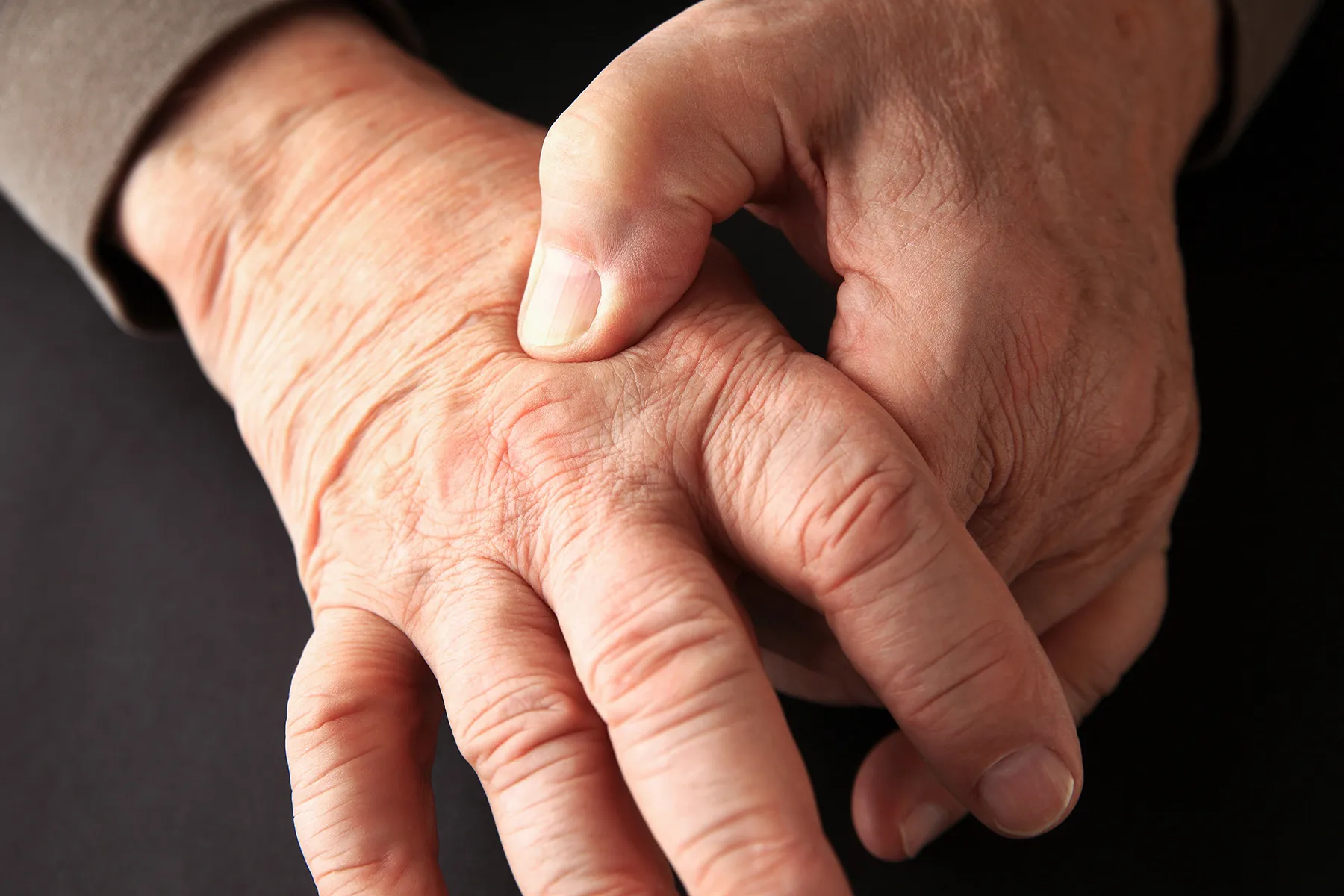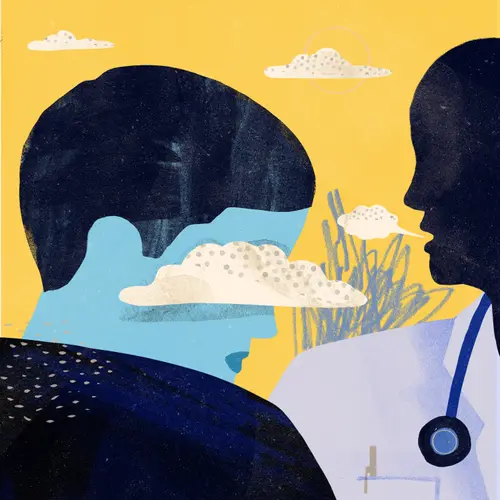Pain Management Medical Reference

Can OTC Pain Medications Help With Arthritis?
- Los analgésicos sin receta médica y el dolor de la artritis
Obtén más información sobre los analgésicos sin receta médica que pueden ayudar con el dolor producido por la artritis.
- ¿Cuáles son las causas del síndrome de dolor crónico?
Obtén más información sobre las causes del síndrome de dolor crónico y como conseguir alivio.
- Medicamentos para el dolor
Estos son los analgésicos disponibles para el alivio del dolor.
- El manejo del dolor: las terapias alternativas
Obtén más información sobre las terapias alternativas que pueden ayudar en el manejo del dolor.
- ¿Qué causa el dolor crónico?
¿Cuáles son las causas del dolor crónico?
- El manejo del dolor: una descripción general del tratamiento
Infórmate sobre los diferentes tratamientos para el dolor crónico, incluidas la cirugía y los remedios naturales.
- ¿Tengo dolor crónico?
Descubre cuáles son las causas del dolor crónico y el efecto que puede tener en la salud emocional y mental.
- Las clasificaciones y causas del dolor: dolor neural, dolor muscular y más
Obtén más información sobre los diferentes tipos de dolor.
- Preguntas frecuentes sobre el manejo del dolor
Lee las respuestas a las preguntas más comunas sobre el manejo del dolor.
- ¿Cómo encuentran los médicos la causa del dolor?
El diagnóstico del dolor: estos son los análisis que usan los médicos para identificar las causas del dolor.
- Ways of Complementing OTC Pain Medicine
Learn more about how to manage pain more effectively by taking OTC pain relief as well as making healthy lifestyle choices.
- OTC Versus Prescription Medicine for Chronic Pain
You can manage chronic pain with OTC pain relief, but it’s important to talk with your doctor before taking any medicine for an extended period.
- The Importance of OTC Drug Safety
When over-the-counter pain relievers are not used safely, it can lead to serious health problems. Learn more.
- Choose the Right OTC Pain Reliever for You
The two types of over-the-counter pain relievers are acetaminophen and nonsteroidal anti-inflammatory drugs. Learn more.
- Spanish-Language Resources for OTC Pain Medicines
Do you have any questions about over-the-counter pain relievers? Learn more about how to find the resources available in Spanish.
- Elige el mejor analgésico sin receta médica para ti
Los dos tipos de analgésicos sin receta médica son el acetaminofeno y los medicamentos antiinflamatorios no esteroideos. Obtén más información.
- Cómo complementar los analgésicos sin receta médica
Puedes controlar el dolor con una combinación de analgésicos sin receta médica y manteniendo un estilo de vida saludable. Obtén más información.
- Analgésicos con y sin receta médica para el dolor crónico
Puedes controlar el dolor crónico con analgésicos sin receta, pero primero habla con tu médico antes de tomar cualquier medicamento a largo plazo.
- La importancia de usar los medicamentos sin receta médica de manera segura
Cuando no se usan los analgésicos sin receta médica de manera segura, puede causar posibles efectos secundarios. Obtén más información.
- Recursos en español para el uso de los analgésicos sin receta médica
¿Tienes alguna duda sobre los analgésicos sin receta médica? Obtén más información sobre cómo encontrar los recursos que hay disponibles en español.
- How to Crack Your Back
Cracking your back can offer relief but can be dangerous if done incorrectly. Our simple guidelines will show you how to properly and safely crack your back.
- What Are Hip Abduction Pillows?
Hip abduction pillows may be used by patients following surgery. Find out more about the associated benefits, risks, and how to use one.
- What Is Scapholunate Dissociation?
Scapholunate dissociation is a disruption of the joint between two bones in your wrist. Learn about its causes, symptoms, treatment and long-term dangers.
- What to Know About Sternoclavicular Joint Injuries
Sternoclavicular joint injuries can affect the way your shoulder moves and works. Learn the common types of injuries and what causes them.
- What to Know About Shoulder Instability
What causes shoulder instability, and how is it treated? Find out more in our shoulder instability guide.
- What Is Shockwave Therapy?
Find out more about how non-invasive extracorporeal shockwave therapy boosts the healing of tendons and various soft tissue injuries.
- Gabapentin and Lyrica for Pain Control
Find out how gabapentin and Lyrica are used for pain control and when they can be used together.
- What to Know About a Quadriceps Tendon Tear
Find out what you need to know about a quadriceps tendon tear, and discover how it can affect health.
- What to Know About a Radial Head Fracture
Find out what you need to know about radial head fractures and their causes, symptoms, treatment, and more.
- What to Know About “Text Neck”
What is “text neck,” and how does it affect your health?
- What Is Anterior Ankle Impingement?
Learn about anterior ankle impingement, as well as its causes, symptoms, and treatment options.
- What Is Extracorporeal Shockwave Therapy?
Has your doctor recommended extracorporeal shockwave therapy, and you're not sure what it is? Read our guide to find out the facts.
- What to Know About Hand Extensor Tendon Injuries
Find out what you need to know about hand extensor tendon injuries, including the different types, what causes them, and how they're treated.
- What to Know About Hydrotherapy
Find out what you need to know about hydrotherapy. Discover the pros, cons, and how it may affect health.
- What Are Burners and Stingers?
Burners and stingers are common injuries among athletes who play contact sports. Here’s what you should know about diagnosis, treatment, and recovery time.
- What to Know About Speed's Test and Yergason's Test
Learn about Yergason’s and Speed’s Tests. Discover how these physical examinations can help your doctor diagnose your shoulder injury.
- What to Know About Peroneal Tendonitis
Find out what causes the peroneal tendons to become inflamed and how this peroneal tendonitis is treated.
- What Is the Gate Control Theory of Pain?
Learn about the gate control theory of pain and understand how the spinal nerves might affect which sensations we perceive as pain.
- What to Know About Your Funny Bone
Find out what you need to know about your funny bone including what it is, why it feels weird, and what it does.
- What Is Brachial Plexus Palsy?
Brachial plexus palsy is weakness or paralysis in parts of the arm due to injury. Learn about the causes, symptoms, and treatment options for this condition today.
- What to Know About a Hip Pointer
Find out what you need to know about hip pointers and discover their causes, symptoms, and effect on health.
- What Is a Stellate Ganglion Block?
A stellate ganglion block (sympathetic nerve block) is a localized anesthetic injection used to treat pain, circulation problems, or nerve injuries. Learn more.
- What to Know About Heel Bursitis
Find out what you need to know about heel bursitis, and discover the causes and treatments, and how it may affect health.
- What Is a Hypogastric Plexus Block?
What is a hypogastric plexus block procedure? Learn about how it works and what to expect.
- What to Know About an Axillary Nerve Injury
Find out what you need to know about an axillary nerve injury, including the causes, symptoms, and treatment.
- What to Know About Retrocalcaneal Bursitis
Find out what retrocalcaneal bursitis is, how long it takes for you to recover from it, and if you can run with it.
- What Is Nociceptive Pain?
Nociceptive pain is discomfort caused by damage or injury to your body. Learn about the types, symptoms, and treatment options.
- What to Know About Biceps Tenodesis
Learn about biceps tenodesis and what type of injury may require this procedure.
- What to Know About Trendelenburg Gait
Learn about the Trendelenburg gait, what causes it, and how it can be treated.
